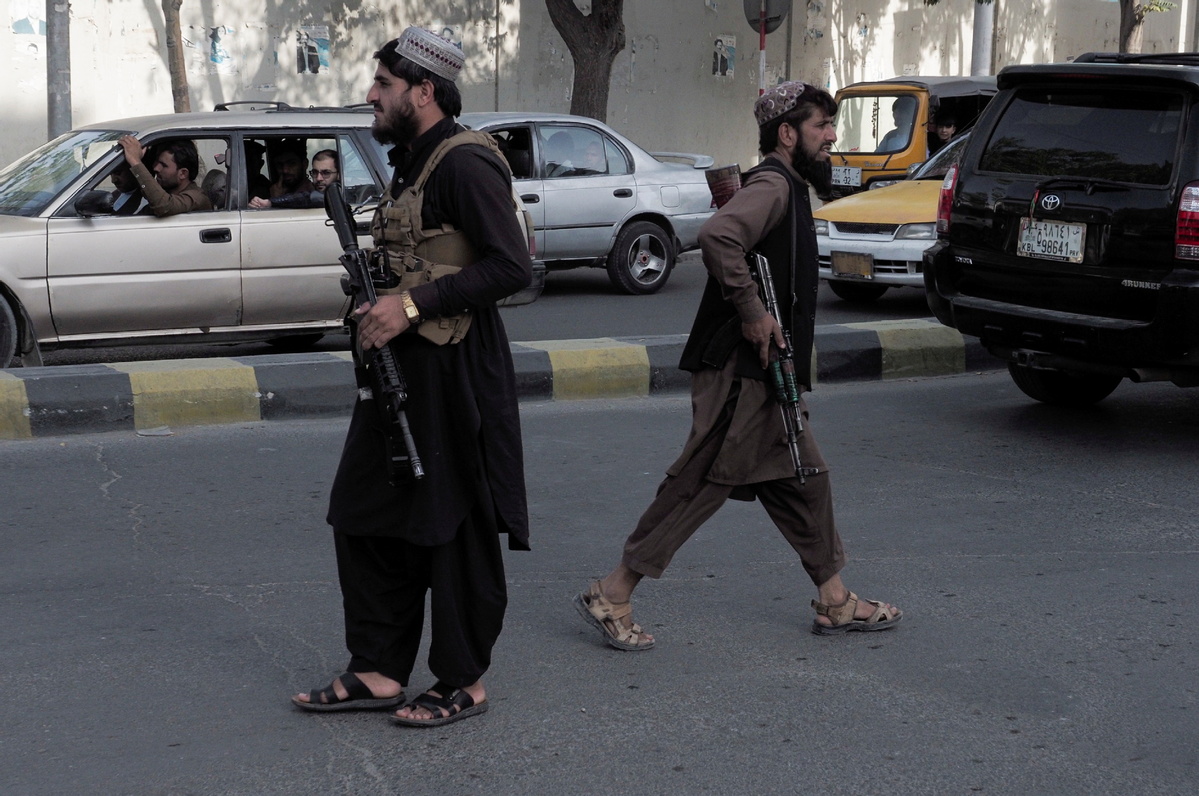Plea to keep Afghan aid free of strings
By JAN YUMUL in Hong Kong | China Daily | Updated: 2021-09-24 09:00

If terms added, suffering will worsen, say experts pointing to refugee fears
With little aid reaching desperate Afghans in the month since the Taliban takeover of Afghanistan, calls have been made for donors to give without conditions in order not to worsen their suffering.
Afghanistan's acting Foreign Minister Amir Khan Muttaqi last week urged international donors to restart aid flows and the international community not to politicize assistance.
The United States froze Afghanistan's dollar-denominated deposits that make up the majority of the central bank's reserves after the Taliban captured Kabul on Aug 15. The capital fell following a chaotic pullout of US and allied troops ahead of an Aug 31 deadline.
Ali Haider Saleem, a researcher at the Centre for Aerospace and Security Studies, a think tank in Islamabad, Pakistan, said the international community ought to take into account the magnitude of the crisis in Afghanistan, as the US "has already made many strategic miscalculations there".
"Denying the country aid would be considered an economic and humanitarian miscalculation," said Saleem, adding that funds could be sent in quarterly installments to better assess the situation over time.
"The situation will only deteriorate and more people will look to migrate to other countries," the researcher said. "And that obviously has more security and economic implications for its neighboring countries, particularly Pakistan, which has been hosting millions of Afghans already."
Amina Khan, director of the Centre for Afghanistan, Middle East and Africa at the Institute of Strategic Studies in Islamabad, takes a similar view.
If donors have concerns as to where the aid would go, she said, mechanisms could be put in place to address such issues.
Imtiaz Gul, executive director of the Center for Research and Security Studies in Pakistan, said Afghanistan's neighbors are worried about a possible "spillover of the conflict" and any subsequent increase in refugee outflows.
He also said some of these countries were worried that refugees would carry the coronavirus.
Farhan Mujahid Chak, an associate professor of political science and Gulf studies at Qatar University, said that with adequate foresight, planning and sincerity, the Afghan issue is "manageable".
"I think that so far the refugee issue has been contained but the worry is that the international community led by the US will punish the new Afghan government, which may precipitate a new refugee exodus," he said.
The US has signaled it will likely finance the work of United Nations and other agencies in Afghanistan, rather than entrust the funds to the Taliban-led government.
The European Union intends to focus on humanitarian aid as it navigates how to deal with the Taliban to ensure safe aid corridors.
Regional mechanism
"I understand there are logical and valid apprehensions regarding the Taliban, particularly because of the previous atrocities they had committed, but the group has inherited a pretty messy situation in Afghanistan," Amina Khan said. "And I think for the international community to expect them to deliver so quickly is I think a little unfair."
Amina Khan believes there is room for the Taliban to move toward an inclusive government. But if aid is going to be dependent on certain conditions, she thinks the group won't be able to fulfill them in the immediate term because it's in a transition period.
The scholar said that despite regional instability, there is still a need for a regional mechanism that can provide developmental aid to Afghanistan. "I'm not talking about trade credit but more of regional developmental mechanism that could provide aid," she said.
"Winter is coming up. So a regional donors' conference is essential. I know individually countries have been giving, but I think it would be better to do it under a regional mechanism because I think that could put pressure on the Taliban to deliver instead of doing it individually."
The UN earlier envisaged a worst-case scenario of 500,000 Afghan refugees arriving in neighboring countries by the end of the year. On Sept 13, it secured a financial commitment of more than $1.2 billion from the international community to support Afghans.
Xu Weiwei in Hong Kong contributed to this story.
























